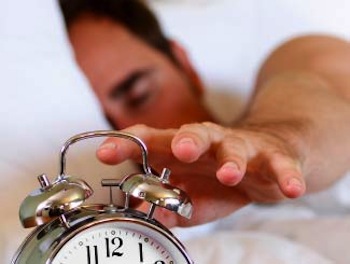Administrator
Possible Causes of Fatigue
Fourteen Possible Causes of Fatigue, does one or more of them fit you?
Fatigue Cause No. 1: Not Enough Sleep
It may seem obvious but you could be getting too little sleep. That can negatively affect your concentration and health. Adults should get seven to eight hours every night.
Fix: Make sleep a priority and keep a regular schedule. Ban laptops, cell phones, and televisions from your bedroom. Still having trouble? Seek help from a doctor. You may have a sleep disorder.
Fatigue Cause No. 2: Sleep Apnea
Some people think they're sleeping enough, but sleep apnea gets in the way. It briefly stops your breathing throughout the night. Each interruption wakes you for a moment, but you may not be aware of it. The result: you’re sleep-deprived despite spending eight hours in bed. Your doctor may order a sleep study to check for this.
Fix: Lose weight if you're overweight, quit smoking, and you may need a CPAP device to help keep your airway passages open while you sleep.
Fatigue Cause No. 3: Not Enough Fuel
Eating too little causes fatigue, but eating the wrong foods can also be a problem. Eating a balanced diet helps keep your blood sugar in a normal range and prevents that sluggish feeling when your blood sugar drops.
Fix: Always eat breakfast and try to include protein and complex carbs in every meal. For example, eat eggs with whole-grain toast. Also eat small meals and snacks throughout the day for sustained energy.
Fatigue Cause No. 4: Anemia
Anemia is one of the leading causes of fatigue in women. Menstrual blood loss can cause an iron deficiency, putting women at risk. Red blood cells (shown here) are needed because they carry oxygen to your tissues and organs.
Fix: For anemia caused by an iron deficiency, taking iron supplements and eating iron-rich foods, such as lean meat, liver, shellfish, beans, and enriched cereal, can help.
Fatigue Cause No. 5: Depression
You may think of depression as an emotional disorder, but it contributes to many physical symptoms as well. Fatigue, headaches, and loss of appetite are among the most common symptoms. If you feel tired and "down" for more than a few of weeks, see your doctor.
Fix: Depression responds well to talk therapy and/or medication.
Fatigue Cause No. 6: Hypothyroidism
The thyroid is a small gland at the base of your neck. It controls your metabolism, the speed at which your body converts fuel into energy. When the gland is underactive and the metabolism functions too slowly, you may feel sluggish and put on weight.
Fix: If a blood test confirms your thyroid hormones are low, synthetic hormones can bring you up to speed.
Fatigue Cause No. 7: Caffeine Overload
Caffeine can improve alertness and concentration in moderate doses. But too much can increase heart rate, blood pressure, and jitteriness. And research indicates too much actually causes fatigue in some people.
Fix: Gradually cut back on coffee, tea, chocolate, soft drinks, and any medications that contain caffeine. Stopping suddenly can cause caffeine withdrawal and more fatigue.
Fatigue Cause No. 8: Hidden UTI
If you've ever had a urinary tract infection (UTI), you're probably familiar with the burning pain and sense of urgency. But the infection does not always announce itself with such obvious symptoms. In some cases, fatigue may be the only sign. A urine test can quickly confirm a UTI.
Fix: Antibiotics are the cure for UTIs, and the fatigue will usually vanish within a week.
Fatigue Cause No. 9: Diabetes
In people with diabetes, abnormally high levels of sugar remain in the bloodstream instead of entering the body's cells, where it would be converted into energy. The result is a body that runs out of steam despite having enough to eat. If you have persistent, unexplained fatigue, ask your doctor about being tested for diabetes.
Fix: Treatments for diabetes may include lifestyle changes such as diet and exercise, insulin therapy, and medications to help the body process sugar.
Fatigue Cause No. 10: Dehydration
Your fatigue can be a sign of dehydration. Whether you're working out or working a desk job, your body needs water to work well and keep cool. If you're thirsty, you're already dehydrated.
Fix: Drink water throughout the day so your urine is light colored. Have at least two cups of water an hour or more before a planned physical activity. Then, sip throughout your workout and afterwards drink another two cups.
Fatigue Cause No. 11: Heart Disease
When fatigue strikes during everyday activities, such as cleaning the house or weeding the yard, it can be a sign that your heart is no longer up to the job. If you notice it's becoming increasingly difficult to finish tasks that were once easy, talk to your doctor about heart disease.
Fix: Lifestyle changes, medication, and therapeutic procedures can get heart disease under control and restore your energy.
Fatigue Cause No. 12: Shift Work Sleep Disorder
Working nights or rotating shifts can disrupt your internal clock. You may feel tired when you need to be awake. And you may have trouble sleeping during the day.
Fix: Limit your exposure to daylight when you need to rest. Make your room dark, quiet, and cool. Still having sleep issues? Talk with your doctor. Supplements and medications may help.
Fatigue Cause No. 13: Food Allergies
Some doctors believe hidden food allergies can make you sleepy. If your fatigue intensifies after meals, you could have a mild intolerance to something you're eating -- not enough to cause itching or hives, just enough to make you tired.
Fix: Try eliminating foods one at a time to see if your fatigue improves. You can also ask your doctor about a food allergy test.
Fatigue Cause No. 14: CFS and Fibromyalgia
If your fatigue lasts more than six months and is so severe that you can't manage your daily activities, chronic fatigue syndrome or fibromyalgia are a possibility. Both can have various symptoms, but persistent, unexplained exhaustion is a main one.
Fix: While there's no quick fix for CFS or fibromyalgia, patients often benefit from changing their daily schedule, learning better sleep habits, and starting a gentle exercise program.
Fast Fix for Mild Fatigue
If you have mild fatigue that isn't linked to any medical condition, the solution may be exercise. Research suggests healthy but tired adults can get a significant energy boost from a modest workout program. In one study, participants rode a stationary bike for 20 minutes at a mild pace. Doing this just three times a week was enough to fight fatigue.
Eat to cheat Ageing
As ageing progresses, a diet full of balanced meals becomes even more important as a foundation for wellbeing. By Ngaire Hobbins
Food is comfort, food is joy, food is medicine.
New Study on the Ageing Brain
New research has bolstered evidence suggesting that one part of the human brain is better protected from ageing and cognitive deterioration than others. By Andrew Bracey
New Study on the Ageing Brain
New research has bolstered evidence suggesting that one part of the human brain is better protected from ageing and cognitive deterioration than others. By Andrew Bracey
Mall Chemmart Supports AFOM
Mall Chemmart® Pharmacy community fund program supports Australian Families of the Military (AFOM)
For the next 3 months Mall Chemmart® Pharmacy will be donating five per cent from the sale of all Chemmart® branded products to Australian Families of the Military (AFOM) as part of the Chemmart® Community Fund program.
AFOM is a Foundation set up by current and past serving Australian Military Personnel and their Families. They aim to provide funds for research that are not encumbered by political and/or Departmental outcomes and provide help and support throughout the Military and Veteran Community.
Combat Stress found to Persist
 Combat Stress Among Veterans
Combat Stress Among Veterans
Is Found to Persist Since Vietnam
By BENEDICT CAREY: AUG. 7, 2014
A veteran visited the Vietnam Veterans Memorial in November.
A study funded by the Department of Veterans Affairs tracked post-traumatic stress disorder among veterans of the era.
Credit: Chip Somodevilla/Getty Images
Most veterans who had persistent post-traumatic stress a decade or more after serving in the Vietnam War have shown surprisingly little improvement since then, and a large percentage have died, a new study finds, updating landmark research that began a generation ago.
The Mystery of Mental Illness
The Current Status of Transcranial Direct Current Stimulation as a Treatment for Depression
May 07, 2014 | Neuropsychiatry, Depression, Major Depressive Disorder, Transcranial Magnetic Stimulation By William K. Silverstein, BMSc, Zafiris J. Daskalakis, MD, PhD, and Psychiatric Times
Major depressive disorder is a leading cause of disability worldwide, affecting an estimated 120 million people; the lifelong prevalence is 10% to 15%.1,2 Depression leads to severe morbidity and is the leading cause of suicide. An emerging problem in the treatment of depression is the development of treatment resistance. Treatment-resistant depression (TRD) occurs in 15% to 35% of depressed patients.3 In addition, TRD is associated with serious economic burden: the cost of treating TRD is 6 times higher than that of treating nonresistant depression.
Can Food Boost Energy and Mood?
 Though it’s too soon to say, "An apple a day keeps the doldrums away," researchers are studying the links between what we eat and how we feel. There is evidence that changing your diet can change your metabolism and brain chemistry, ultimately affecting your energy level and mood.
Though it’s too soon to say, "An apple a day keeps the doldrums away," researchers are studying the links between what we eat and how we feel. There is evidence that changing your diet can change your metabolism and brain chemistry, ultimately affecting your energy level and mood.
Sleep and Aging
Restful sleep is good for you at any age. But as we get older, our sleep patterns change. Here's what usually happens: less sleep with more interruptions and less time in deep sleep or dream sleep.
Are You Getting Enough Sleep?
Every person's sleep needs are different. The National Sleep Foundation recommends that adults get 7 to 9 hours a night.
If you're getting less sleep than when you were younger but still feel rested and energetic during the day, it might just be that you now need less sleep than you used to.
But if your lack of sleep affects you during the day, then it's time to take action.

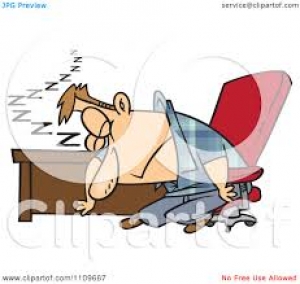

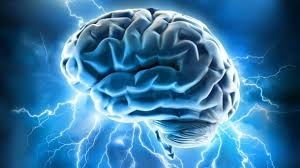

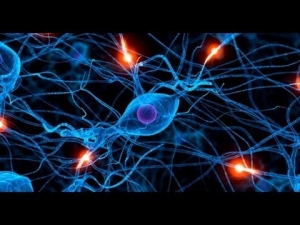
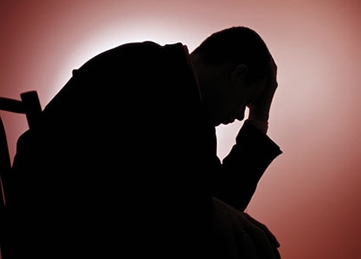 Untreated clinical depression is a serious problem. Untreated depression increases the chance of risky behaviors such as drug or alcohol addiction. It also can ruin relationships, cause problems at work, and make it difficult to overcome serious illnesses.
Untreated clinical depression is a serious problem. Untreated depression increases the chance of risky behaviors such as drug or alcohol addiction. It also can ruin relationships, cause problems at work, and make it difficult to overcome serious illnesses.